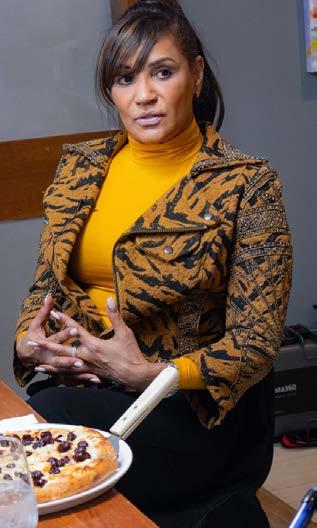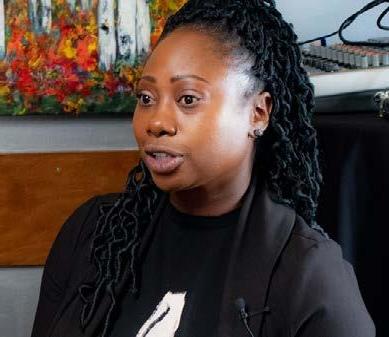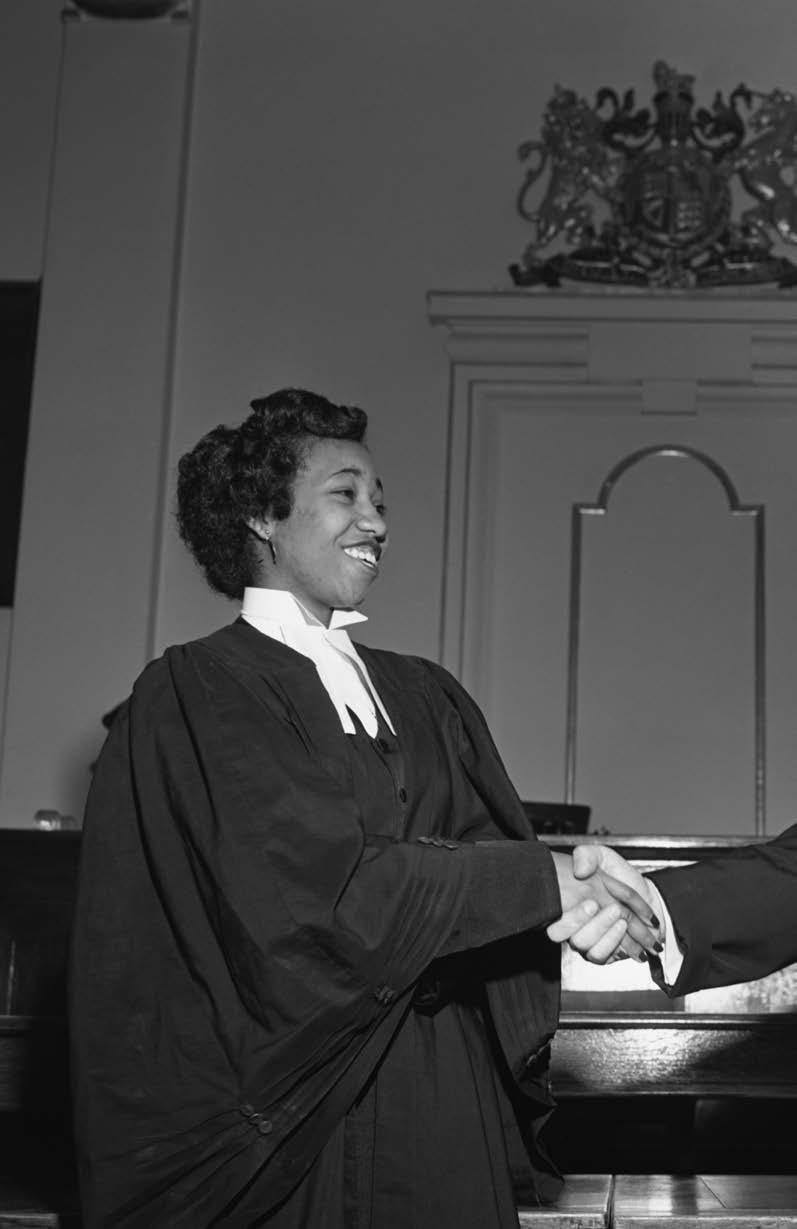
4 minute read
In Conversation - Black Women in Business
Clockwise, from left to right: Sandra Muchekeza Seble Isaac Samantha Alexander Adnerys Armstrong Taneya Rogers
All image credits: NiLo
Advertisement
Itake pride in being a woman; being a woman of colour adds texture to my experiences particularly as I have navigated my career. I was fortunate to engage four spectacular Black women to hear their stories as professionals in fields that are resistant to making spaces for women and even less for Black women. Our host is the multilingual, Seble. She is originally from Ethiopia and the founder and owner of Tiramisu Bistro. Adnerys, born in Aruba but partially raised in Columbia is a mortgage broker and realtor. Samantha has always called Edmonton home but shares both Trinidadian and Grenadian roots and is a marketing lead for a top accounting firm; Sandra, a publisher and director of The Council for Canadians of African and Caribbean Heritage (CCACH) boasts of her Kenyan upbringing.
The consensus amongst the quartet is that taking the time to find your passion is the catalyst for any successful career. That passion must be fueled by a solid education, which proves to be more critical for young women of colour. To grow personally and professionally in an environment that is systematically designed to stifle your progress, Black women are expected to ‘prove themselves’ time and time again. Education becomes a powerful tool in amplifying our voices and asserting ourselves in respective workplaces.
An effective mentor can also have an impact that extends throughout a lifetime. In a perfect world, a mentor would share both your professional and cultural background, allowing for an even stronger connection. However, the mentor that fits you best ought to be one that you can learn from and can inspire growth and development on multiple levels even without a shared cultural background.


STAYING TRUE TO YOURSELF
As a visible minority, our culture often affects our interactions in professional spaces. It is not uncommon to make a concerted effort to ‘tame’ our musical accents in hopes of being genuinely heard by an audience that does not share our cultural background. We may become conscious about hairstyles; keeping it conservative to avoid attracting misguided attention.
How and when does a woman of colour find the balance between being professional and remaining fully connected to her ‘Blackness’? There is no singular answer: For Sandra, owning the richness of her accent and the vibrancy of her
Kenyan-inspired clothing was a deliberate decision that came with personal growth. Adnerys on the other hand is classically defiant and self-assured. You had to accept her the way she is or move along; she never felt pressured to moderate any of her cultural traits. How we show up as Black women is both personal and fluid. As our self-confidence builds, as we educate ourselves and as we become defter at deflecting anti-Black behaviours or comments, the awakening takes place organically.

WHERE PERCEPTIONS CLASH WITH REALITY
Where Blackness intersects with femininity can unfortunately be a chasm of stereotypes and hurtful interactions with a shifting balance. Our intimate discussion stirred a range of emotions. Here is a snippet of some of the stories shared:
My name precedes me – being Black and being an immigrant is coded into my name. It has definitely been a hindrance to my progress - long before I am given the opportunity to demonstrate my skill.
I work in a male-dominated field. Being a woman has more often been my setback rather than being Black. It is felt by myself and by other female workers of different races.
I worked briefly as a model I found out that the booking agent had blocked a number of my bookings. She didn’t want to send out the ‘Brown Girl’.
A regular patron who lauded the quality of service and the product enquired as to who owned the establishment. When I was identified as the owner he then followed up with the question, “Who did she buy the business from?” The idea that a Black woman could own and create a successful enterprise was almost offensive. He has not visited since.


While I can only wish these stories became outdated, I also count them as successes. They speak to our resilience as Black women. Our ability to build and forge forward in places that are less welcoming; our bility to do so with excellence and grace is even more phenomenal. Counteracting these negative perceptions takes place on multiple levels:
Personal Work – your self-esteem and self-confidence as a Black woman is your first line of defence.
Sisterhoods – a core circle of women that uplift you and keep you focused can go a long way in pushing past the tough interactions Engage Allies – a perpetrator’s sexist or racist sentiments may be quelled more effectively by someone who they directly identify with. Identify individuals in your workspace who will be willing to speak up on your behalf, when you momentarily feel voice-less.








